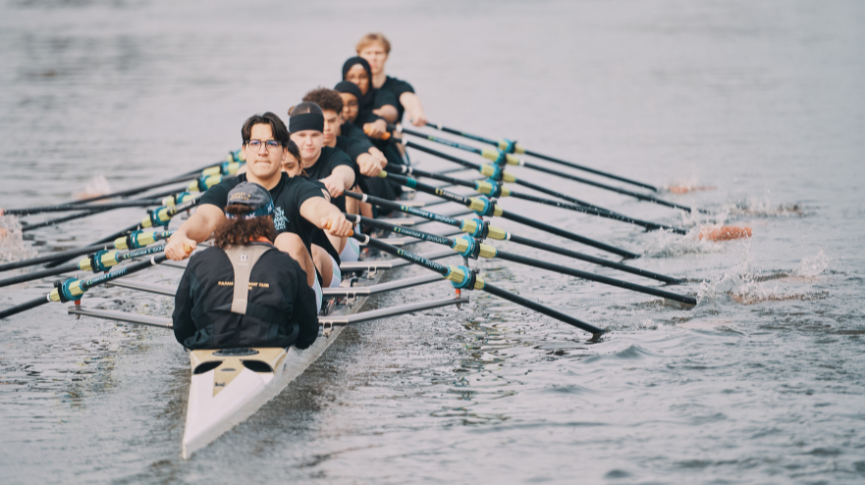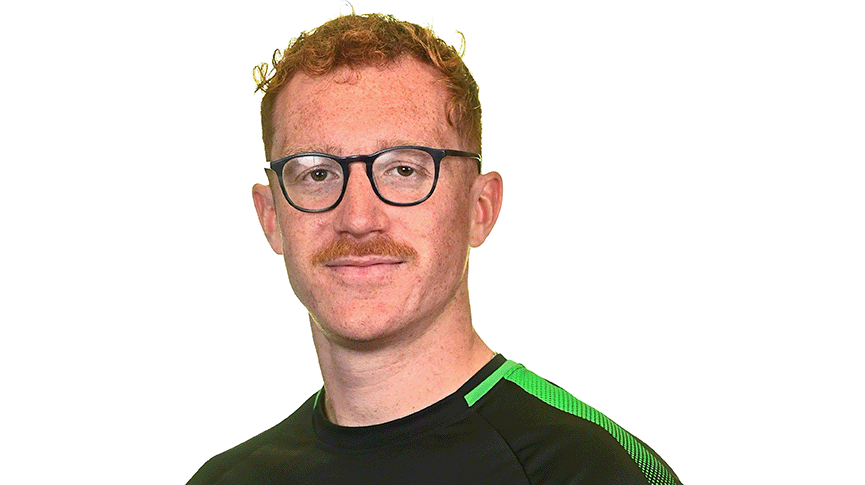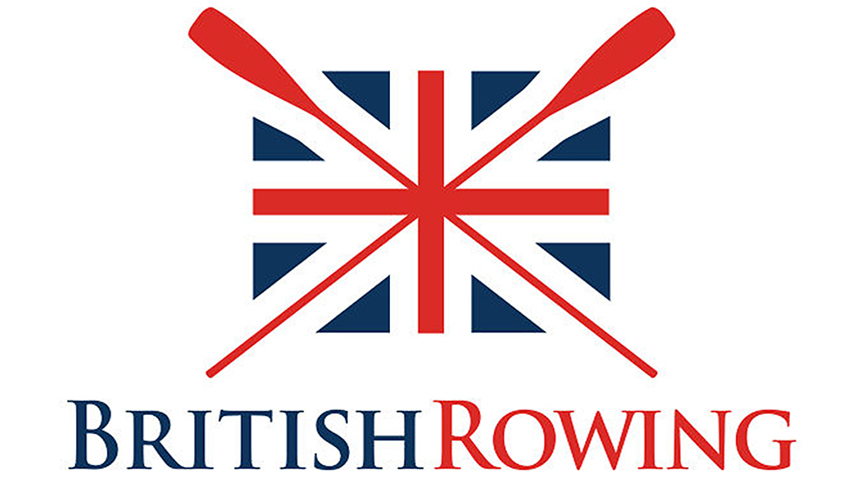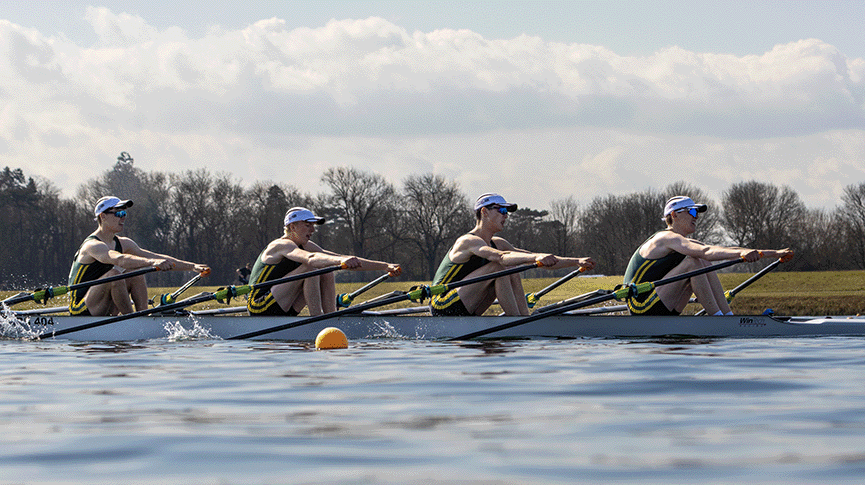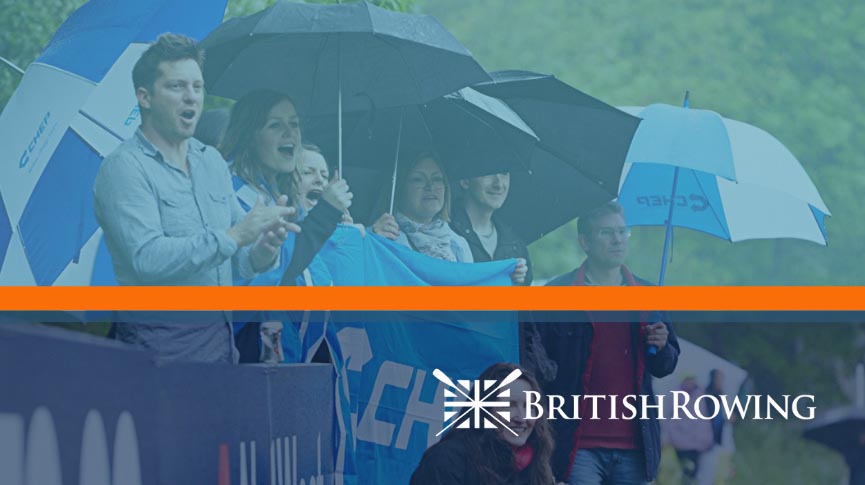Bedford Star masters train for the 2021 Worlds
After finishing second overall at the World Rowing Masters Regatta last year, how have Star and Bedford rowers been training through lockdown? David Sogan provides an update
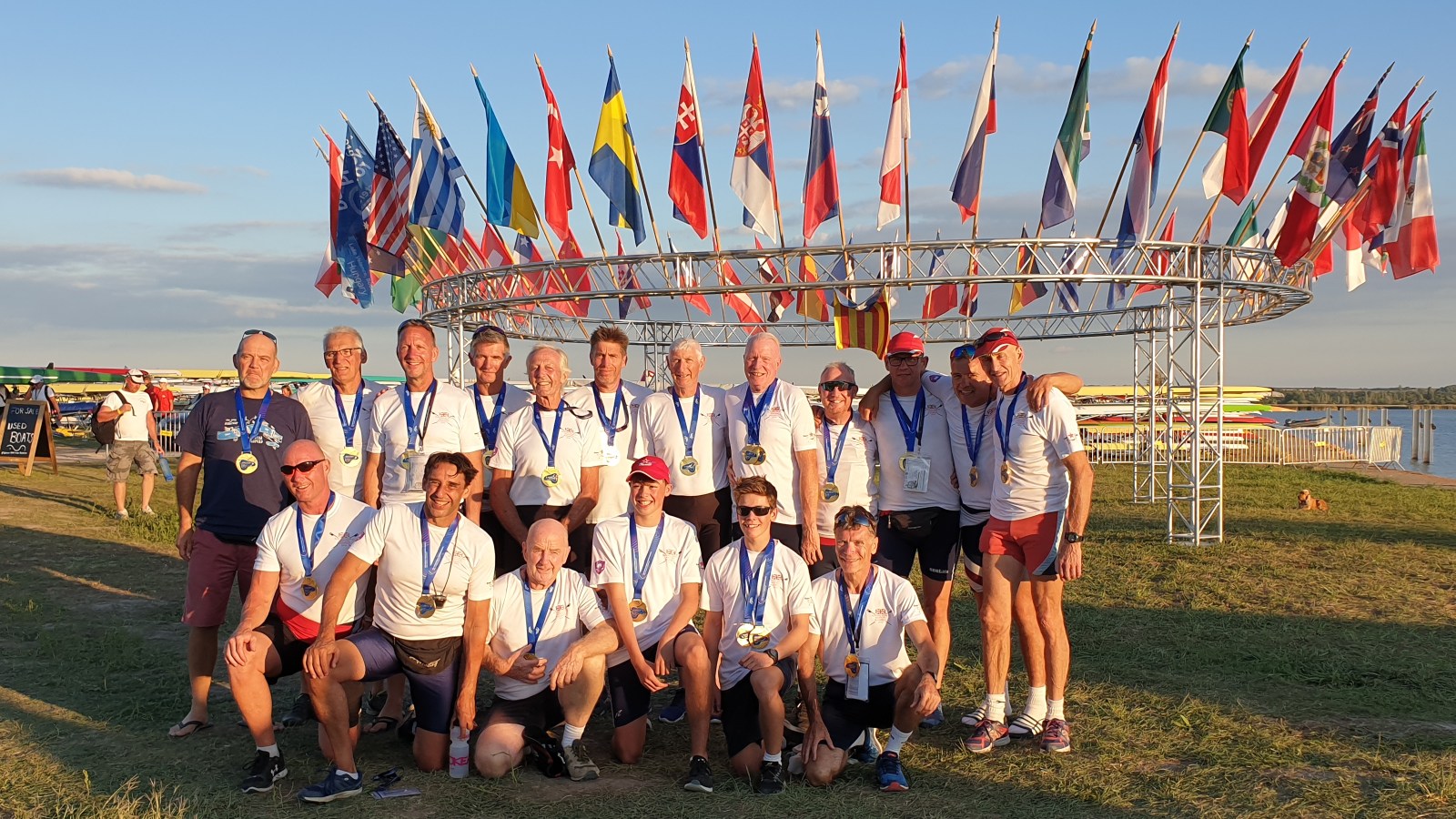
Last September, 28 athletes from Star Club and Bedford Rowing Club achieved extraordinary success at the World Rowing Masters Regatta in Hungary – winning a haul of gold medals from five events and finishing second overall to Ushakov Rowing from Moscow. Pictured above are the medal winners from Star and Bedford clubs.
So, with the turbulent times that have followed, what next for these dedicated masters?
David Sogan, Men’s Masters Coordinator & Performance Director at Star Rowing Club, shares some insights into how the squad have been training over the last six months.
“Following our successful 2019, the Bedford Star masters squad decided to have a few weeks off from intensive training in October and November with the aim of having a nine-month season peaking for the [now postponed] 2020 World Masters in Linz.
“A couple of squad members were not prepared to make the sacrifice again but across the two clubs we still have about 32 men and eight women in the elite Bedford Star masters squad.
“Our return to serious training in December was followed by the most disrupted winter training and head season anyone can remember due mainly to high winds and flooding.
I am a great believer that moving a sculling boat efficiently benefits sculling and sweep in all boat types
“By the time we got to March, the squad had only competed in two heads all winter. The lockdown could not have come at a worst time for the squad. We were about to send an F eight to complete in the Heineken Roeiviercamp in Amsterdam on the 14 March, which was cancelled the day before we were due to fly out. Plus, of course, the Vesta Vets Head was cancelled the following week, where we had entered three crews and were defending two titles.
“It became obvious that competitive rowing was likely to be over for the season and no one could say when we could get back in boats.
“Most of the squad were keen to keep training to keep their sanity and to be ready for the lifting of the lockdown. Our squad does not have a coach, but training guidance is provided by a couple of the rowing group members, with Kevan Armstrong leading on technique and myself on general fitness.
“We decided to treat the lockdown as an extended winter season. I suggested some broad guidelines for the squad, with a focus on building their aerobic base with minimal stress on the body to also keep their immune systems healthy.
“This meant polarising the training, with 85% of the training at low intensity (heart rate capped at 70%) and just 15% at high intensity, usually variations of short and high-intensity interval training.
“Long ergo, cycles or runs of between 30 minute and 90 minutes have been encouraged. The low intensity allows for quicker recovery, so more sessions and more volume can be achieved, leading to a more pronounced training effect.
Shirl Musselle (our oldest member) did a 10-mile run on his 76th birthday
“It’s amazing how much mental discipline is required to keep to the prescribed heart rate and not “overcook” the sessions. I think masters rowers are particularly prone to doing most of their training at just below flat out, which is not a smart way to train.
“Most of the squad are training five to six days a week. Initially, with no access to rowing, it was interesting to see people trying forms of exercise which they had not done for many a year. Many squad members are now cycling and running every week and cross trainers, bike ergs and weights are also proving very popular.
“Some of the standout performances posted by the squad over lockdown were Shirl Musselle (our oldest member) doing a 10-mile run on his 76th birthday; Pete Isaacson doing a 60-mile bike ride in a little over three hours and Colin Hunt relentlessly pumping out morning workouts on the erg.
“Many of us see the lockdown as an opportunity to do things you wouldn’t normally be able to do. For me, personally, I mixed a high volume of low-intensity fasted workouts with a low carb diet and intermittent fasting to shed 8kg of weight I’ve been carrying around for the past 30 years. That’s not something I could have done under normal training circumstances.
“Other members focused on weight training to build up their muscle bulk or tried something completely different like Lisa and Andrew Thompson who completed the 60-day Insanity fitness programme.
Perhaps next year we can go one better and win the victor ludorum at the World Masters!
“As lockdown has eased about two thirds of the squad are back in sculling boats and again this is a unique opportunity for those members to fine-tune their single sculling skills which, ordinarily, the squad would not get time for as we spend so much time training in eights.
“I am a great believer that moving a sculling boat efficiently benefits sculling and sweep in all boat types. The same training regime applies, with an emphasis on long outings at rate 18 to 20 with heart rate capped at 70% of max to build the aerobic base.
“Masters rowing at national and international level gets more competitive every year and to keep winning you need to work on every aspect.
“The squad has been positive in using the lockdown as an opportunity to experience new ways of training and interacting. I believe we will emerge from lockdown mentally and physically stronger, which will lead to improved performances when we get the chance to race again.
“Perhaps next year we can go one better and win the victor ludorum at the World Masters! You’ve got to have ambition.”



